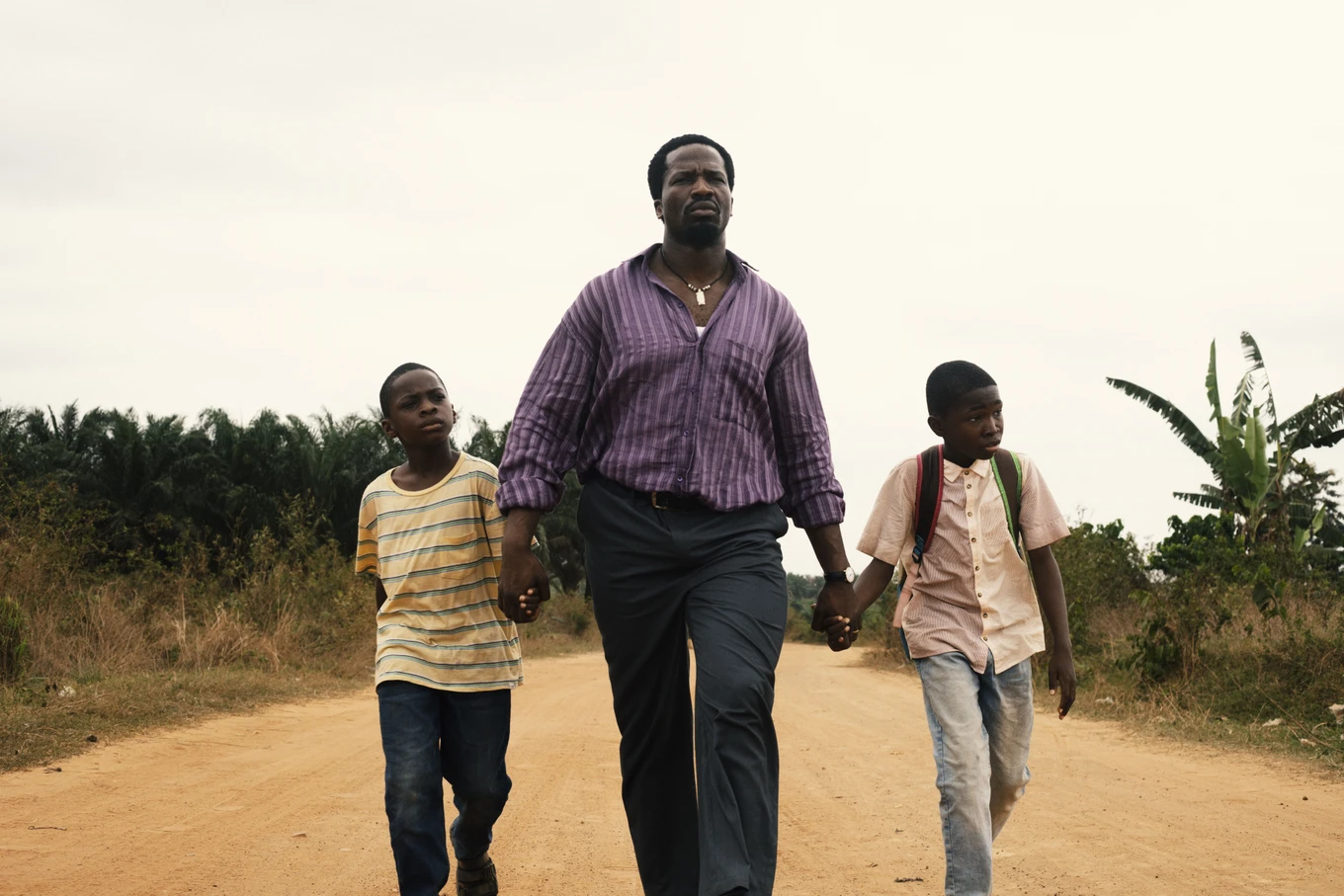If you look at the world through professional wrestling, it’s simple. On one side there are the good guys, the faces. The honest and hardworking folk, always fighting for what’s right. Their opponents, the bad guys, the heels, are cruel and cowardly, willing to do whatever it takes to get what they want. For better or worse—with some exceptions—the lens of professional wrestling is this black and white.
And this is how two young brothers, Akin and Remi, view life as they play with their hand-drawn WWE paper figures in the first Nigerian film to be shown at Cannes, My Father’s Shadow. Written by brothers Akinola and Wale Davies and directed by the former, the film follows the boys (Chibuike Marvelous Egbo and Godwin Egbo) and their father, Folarin (Sope Dirisu) as they travel from their small village to the vibrant city of Lagos.
Set in 1993 amidst the Nigerian presidential elections—the first since the military coup ten years earlier—Lagos is a city rife with unease. Plagued with fuel shortages, unpaid wages, and structural instability, these issues serve as everyday tensions that Nigerians deal with, issues Folarin loudly decrees. As his boys look on, Folarin loudly airs his grievances with the current state of Nigerian affairs and how he dreams of a better future for his children; a future in which they are not reliant on buses that are bound to break down or supervisors that skip town. This future is built upon the election results which cast a dark shadow over the entire film, lurking behind every moment.
But in spite of these trying times there are bright spots. Above all else, Folarin’s interaction with the boys showcases the absolute joy of fatherhood. His unconditional love for his sons shines through; his commitment to teaching them fairness and for providing as much stability as possible—which makes it all the more gut-wrenching that he is admittedly missing their life. In one emotional scene he cries out “you both have grown so much”, one part of a stellar performance by Dirisu that completely oozes both pride and sadness. His sacrifice is born out of a primordial desire to see his children do better than he did; to give them a fair life in the only way he knows how. The complexity related to this, as well as his chronic absence and connections with others in Lagos shows that, in spite of this selfless commitment to his children, he is far from a perfect man. He’s neither good nor bad; he is simply trying to do his best.
In the end, My Father’s Shadow has control over the viewer’s heart strings through the film’s entirety. With its emphasis on viewing the world through a child’s eye, all while the world around them is threatening to be disrupted at a moments notice, the film effectively embodies loss of innocence. But perhaps its greatest triumph is creating a father figure as rich and complex in Folarin. Through him, the film reminds us all that parenthood is deeply complicated with every choice having compounding effects no one can predict.
But in spite of that, the joy of being a parent is trying to do right by your children. The privilege of calling oneself a parent; holding their children, guiding them through the city, introducing them to parts of the world and yourself, all while witnessing them develop into their own unique individual is something this film repeatedly triumphs. It stresses that for both parent and child, there is no blueprint to follow; we are all trying our best, and may we all be so lucky to have that opportunity.

